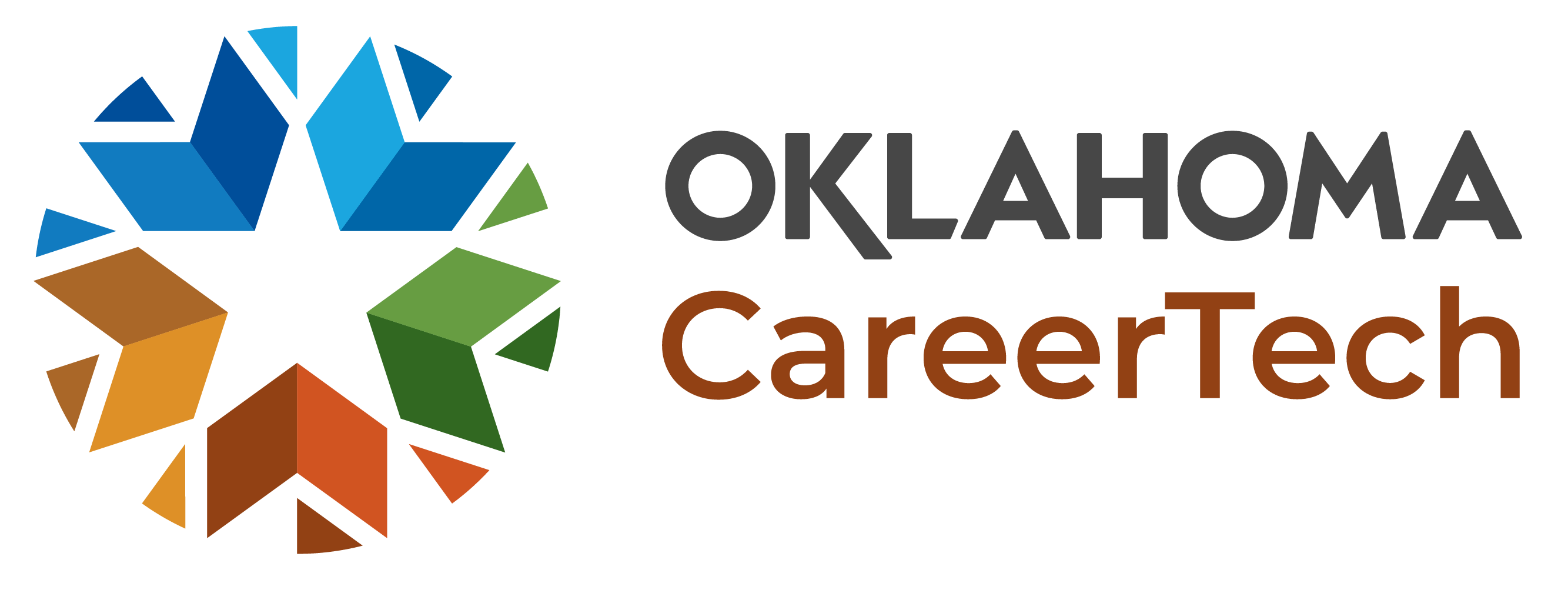About Career Clusters
WHAT ARE CAREER CLUSTERS?
Career Clusters are broad occupational groupings of specific industry based jobs. The 17 Career Clusters provide an organizing tool or framework for schools, colleges, technology centers, academies and all education entities.
Career Clusters provide a way for schools to organize instruction and student experiences around 17 broad categories that encompass virtually all occupations from entry through professional levels.
Each cluster (broad occupational grouping) is divided into two to seven pathways. Sample occupations are shown for each pathway. A visual representation is shown in the model.
View additional background information.
OKLAHOMA CAREER CLUSTERS AT A GLANCE
Career clusters are comprised of a wide variety of related career majors. Career majors are comprised of a sequence of courses that vary in length. Successful career major completion leads to employment and/or postsecondary enrollment.
CAREER CLUSTERS VISION:
Sharing the Career Clusters Vision: Why, What and How?
Download an eight page brochure that answers these questions:
Oklahoma's Career and Technology Education Career Clusters Design White Paper
CAREER CLUSTERS KEY MESSAGES:
Career Clusters connect:
-
Today’s preparation to tomorrow’s careers.
-
Academic, technical and employability skills.
-
Educational systems.
Career Clusters connect today’s preparation to tomorrow’s careers.
-
Learners are better prepared for career success when they can relate their educational experiences to their future goals and aspirations.
-
Today’s jobs take a different type of training than in the past; therefore, a different type of instruction is needed.
-
Career Clusters keep instruction relevant.
-
Career Clusters provide options for the emerging workforce.
Career Clusters connect academic, technical and employability skills.
-
Career Clusters provide the instructional framework for CTE to offer industry-focused, student-centered, and performance-driven learning.
-
Career Clusters provide transferable skills for today’s workers.
-
Career Clusters prepare students to compete for high-demand, high-wage, and high-skill jobs.
-
Career Clusters provide a better-qualified workforce for business and industry. Career Clusters provide courses that are aligned to industry credentials.
Career Clusters connect educational systems.
-
Career Clusters provide a conceptual structure to expand educational and career opportunities for learners.
-
Career Clusters provide continuous learning opportunities to help learners advance in their careers.
-
Career Clusters create an easier transition to postsecondary education.
-
Career Clusters support uniform curriculum alignment across education systems.


